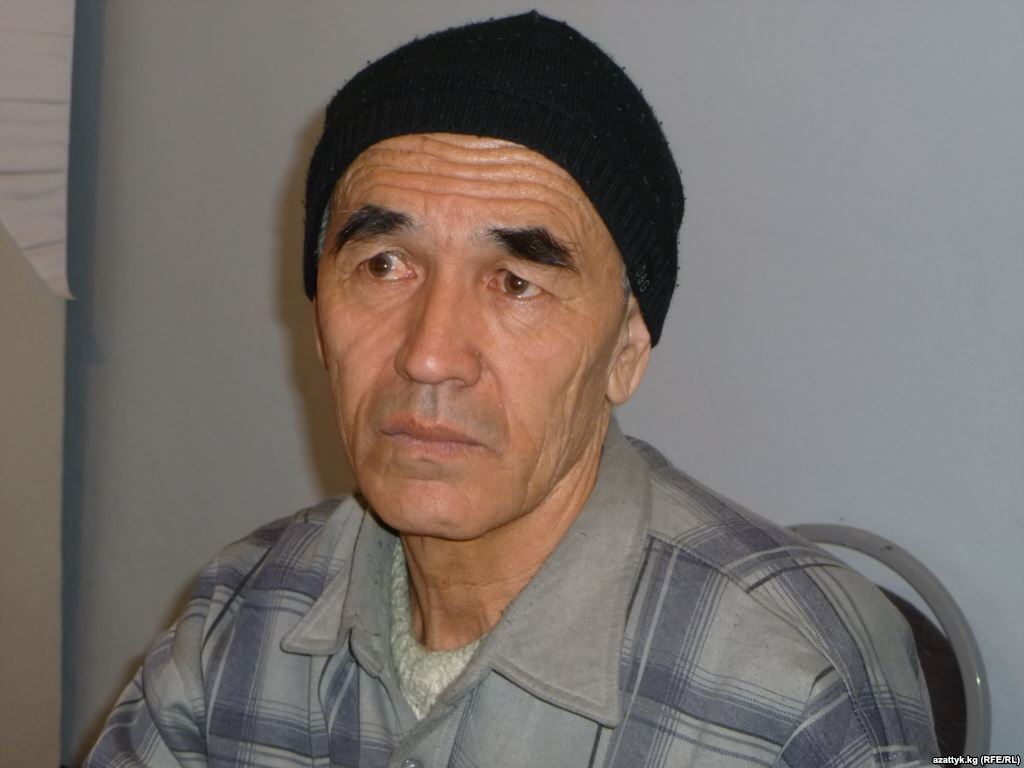BISHKEK (TCA) — UN experts have called on Kyrgyzstan to immediately release jailed political activist and journalist Azimjan Askarov, after finding that he had been arbitrarily detained, held in inhumane conditions, tortured and mistreated, and prevented from adequately preparing his trial defence, the UN Human Rights Committee said in a press release on April 21.
The UN Human Rights Committee, which considered a complaint brought by Mr. Askarov against Kyrgyzstan, also called for his conviction to be quashed.
Mr. Askarov, a human rights defender who has documented human rights violations by the police and prison authorities in his hometown of Bazar-Korgon for more than 10 years, was arrested on 15 June 2010 in the aftermath of ethnic violence in southern Kyrgyzstan. He was found guilty of instigating ethnic hatred, inciting disorder and being complicit in the murder of a police officer who died during the unrest, and given a life sentence.
The Committee, composed of 18 international independent human rights experts, found that, in its treatment of Mr. Askarov, Kyrgyzstan had violated several articles of the International Covenant on Civil and Political Rights (ICCPR), to which it is a State party.
The Committee noted that Mr. Askarov was initially detained at the police station where the deceased officer was based and that no specific security measures were in place to safeguard him. “The findings of the medical forensic examinations conducted by independent experts are consistent with other evidence suggesting (Mr. Askarov) was subjected to acts of torture,” the Committee members wrote in their findings.
Kyrgyzstan also failed to carry out a prompt and effective investigation into Mr. Askarov’s allegations of torture, the Committee concluded. A subsequent inquiry in 2013, “while extensive, lacked the element of impartiality, as it interviewed more than 100 law enforcement officers, judges, court clerks and prosecutors but failed to interview (Mr. Askarov’s) lawyers, human rights defenders who visited him in prison, and his relatives,” the Committee wrote.
The Committee also said that the conditions in which Mr. Askarov was held were inhumane and he was unable to get proper treatment for serious medical conditions.
The Committee noted that Mr. Askarov had alleged that he and his lawyer were unable to meet in private, and information necessary for his defence was withheld. On several occasions, relatives of the deceased officer attacked his lawyer, while the police and local prosecutors failed to intervene.
This, the Committee found, created “a general sense of fear, incompatible with the proper execution of the defence lawyer’s functions.” There was also unrefuted evidence that his lawyer was notified too late to attend the first day of trial on 2 September 2010, when the court heard 16 prosecution witnesses. The guarantee to be able to call and question witnesses “is important for ensuring an effective defence by the accused and their counsel,” members stressed.
Kyrgyzstan is obliged to make full reparation to Mr. Askarov, the Committee concluded, including his immediate release. If necessary a new trial should be held, “subject to the principles of fair hearings, presumption of innocence and other procedural safeguards,” the committee members said.
In July 2015, Kyrgyzstan terminated the Kyrgyz-US agreement on Cooperation to Facilitate the Provision of Assistance after Bishkek protested a US decision to grant a prestigious human rights award to Azimjan Askarov.
On July 17, 2015 Kyrgyzstan’s Foreign Ministry protested Washington’s decision to confer the 2014 Human Rights Defender Award on Askarov.
The Foreign Ministry then said that Askarov was convicted by Kyrgyz courts of inciting ethnic hatred, organizing mass disorder, and complicity in the murder of a law-enforcement officer, and that the “awarding of Askarov is considered a deliberate action against the strengthening of interethnic peace and harmony in Kyrgyzstan”.



